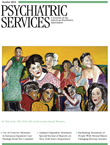The 2008 National Survey on Drug Use and Health reported that 117.3 million (47%) Americans aged 12 or older have used illicit substances (not including alcohol and tobacco) in their lifetime. Also, 21.8 million (9.2%) Americans aged 12 or older needed treatment for substance abuse or dependence in 2008, and only 2.3 million actually received the treatment they needed.
The scope and implications of problematic substance use in contemporary America underscore perhaps one of the greatest human tragedies of our times. With this framework, Mitchell Earleywine, associate professor of clinical psychology at the State University of New York at Albany, delivers yet another valuable contribution to the field of addiction medicine. This is volume 15 of the series Advances in Psychotherapy—Evidence-Based Practice, developed and edited with the support of the Society of Clinical Psychology, division 12 of the American Psychological Association.
The book features seven chapters and includes an appendix containing an inventory of drug use consequences and a shortened inventory of problems associated with alcohol and drugs. In chapter 1, the author adheres to the DSM-IV definitions of abuse and dependence and emphasizes the goal of fostering a therapeutic alliance with clients. By conceptualizing substance use as a continuum from abstinence to dependence, the author clarifies the complex transition from casual use to problematic use, and the model offers multiple points of prevention and intervention. Because the subjective effects of drugs vary across a range of clients and settings, therapists willing to be educated by their clients are often rewarded with useful insights for treatment. The contrast between past-month use versus lifetime use obliges us to recognize the nonlinear and un-"inexorable" progression to dependence and opens up the controversial discussion of nonproblematic use. The book offers a succinct overview of psychiatric comorbidities, including gambling, attention-deficit disorder, and suicidality and suggests instruments for their assessment.
Chapter 2 describes the biopsychosocial model and the interaction of each conceptual dimension with stages of initiation, regular use, problematic use, and treatment outcome. Chapter 3 highlights elements of detailed assessment of drug use, motivation, treatment history, and social support. As the author notes, clinicians often miss assessment as their first opportunity to treat. The chapter addresses practical issues, such as note taking and use of the Timeline Followback interview. Instruments that come in handy in daily clinical work are discussed: Stage of Change Readiness and Treatment Eagerness Scale, University of Rhode Island Change Assessment, and the Readiness to Change Questionnaire.
Chapter 4 is devoted to empirically supported treatments. The fact that "no single effective treatment is appreciably better than another … does not suggest that any approach will work." The author contrasts harm reduction with abstinence, offering a controversial alternative to the mainstream view. He provides an informative overview of substitution therapy, with alternatives concerning timing of administration; he also advises on avoidance of polysubstance combinations and intoxication management, including peer-administered Narcan. Efficacy of treatment is discussed. Empathy, warmth, and genuineness are identified as the foundation of a productive therapeutic process. Motivational interviewing, the stages-of-change model, and decisional balance are discussed with clinical pearls of wisdom, sample dialogue, and targeted strategies. The author shows how elements of relapse prevention (interpersonal high-risk situation versus intrapersonal high-risk situation) and cognitive-behavioral therapy (functional analysis) can be combined to enhance treatment effectiveness. Additional behavioral interventions presented include 12-step facilitation and meditation.
Although not exhaustive or biologically oriented, this volume is a worthy reader-friendly book intended for therapists. It reads as an experiential distillation of practical knowledge from years of clinical and academic experience in problematic substance use, treatment, and research. The stated objective is "[to provide] trainees and professionals with a handy, concise guide for helping problem drug users …[and] improve [readers'] intuitions and clinical skills by adding an overarching understanding of drug use." It is this writer's opinion that Dr. Earleywine has done so.
The reviewer reports no competing interests.

